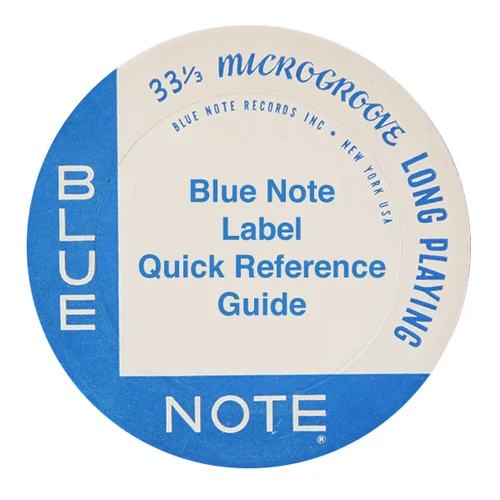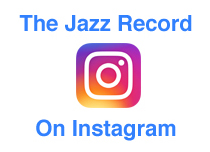Don't Look Back: The Modern Jazz Quartet - "Lonely Woman"
/The Modern Jazz Quartet • Lonely Woman • 1962 • Atlantic Records
Recorded January & February 1962 in New York City
The Selections:
The Tracks:
A1. Lonely Woman
A2. Animal Dance
A3. New York 19
A4. Belkis
B1. Why Are You Blue
B2. Fugato
B3. Lamb, Leopard (If I Were Eve)
B4. Trieste
The Players:
Milt Jackson - Vibes
John Lewis - Piano
Percy Heath - Bass
Connie Kay - Drums
The Record:
The Modern Jazz Quartet
The Modern Jazz Quartet were a dominant creative and commercial force in the jazz world of the 1950s, producing a string of near-classic albums along the way, and even though there were changes all around them (both socially and musically) as the 1960s began, they still managed to stand alongside their peers and create one final studio masterpiece in the form of 1962's Lonely Woman. While the creative changes in jazz were major ones - modal, free jazz, post bop, avant-garde - it's not surprising that The MJQ were able to hold their own during this period. They were always pushing the boundaries of jazz, and even to this day they don't often get their proper due as the adventurous and experimental group they were throughout their career.
The MJQ were the perfect embodiment of both the individual and the collective in jazz music. Each musician was highly talented and brought their own visions to the table, but it's impossible to imagine any of them creating the music they made together without each other contributions. Much of this is due, of course, to John Lewis - the "musical director" of the group - whose interest in what would be dubbed the "Third Stream" (a synthesis of classical and jazz music) was a driving force in The MJQ's music in the late 1950s. These sensibilities can be heard in full on Lonely Woman, in particular on "Lamb, Leopard (If I Were Eve)" which combines some symphonic sensibilities with bluesy jazz lines. He may have had some "heady" ideas for his music, but when he was performing with The MJQ the music never lost it's swing, even on his more somber pieces.
But, let us not forget the great Milt Jackson, the cat who held The MJQ together, with his ringing vibes and subtle yet complex technique, who was able to take Lewis's ideas and compositions and keep the group in the jazz pocket. Along with the rhythm section of Kay and Heath, Jackson helps elevate a beautiful song like "New York 19" to another level. Lewis's piano playing is wonderful, but it's Jackson's improvised solo that keeps the listener's interest. In 1962 it was Lewis who was considered the mastermind (the composer, the visionary) behind the group, but as the year's have passed Jackson's contributions seem equally vital to the lasting legacy of The MJQ.
As for the title track (a now classic Ornette Coleman composition), at the time it must have seen somewhat odd that a "popular" group like The MJQ would choose to record it. Coleman was still a monumentally controversial figure in the jazz world, not accepted as the great innovator that he was. Yet, it was actually The MJQ who had helped get Coleman's career in jazz started, sponsoring him at The School of Jazz, so it was only fitting that Lewis and company would take what would become one of his most well known songs and place it front and center on the album. And, as they were apt to do, the group brought their own stylings to "Lonely Woman" replacing some of the original's desperation with a more wistful feel that shows off Coleman's under appreciated (at the time anyway) compositional skills. If folks in the jazz world had been surprised by Lewis' championing of the young Coleman a few years earlier (certainly Coleman's view on the use of harmony in jazz didn't appear to jive with Lewis' Third Stream vision), they must have been greatly impressed at how The MJQ could fashion his music into something they could call their own.
The Vinyl:
The Details: My copy is a very nice second mono pressing with the classic red and purple label featuring the "black fan" on the left side (the original mono would have the "white fan") that dates from 1962 to 1966 .
The Price: I paid $16 at a local shop. The cover is a bit beat up, but I would rate the vinyl just a touch below VG+ condition so more than a fair price for this copy.
The Sound: These early '60s Atlantic pressings have great analog sound with lots of depth and a great separation of the high, middle and low ends of the recording.
Final Thoughts: I didn't know much about Lonely Woman before I picked it up, which I did because (1) it's The Modern Jazz Quartet and (2) it was a vintage Atlantic mono pressing for under $20. It was more than a worthwhile purchase, and a highly recommended addition to any jazz collection. It is their last classic studio record (they would release a few more great live recordings), but gets a little lost in their vast discography. That definitely shouldn't be the case, it is an exciting LP that rewards repeated listening, as all the best jazz records do.












